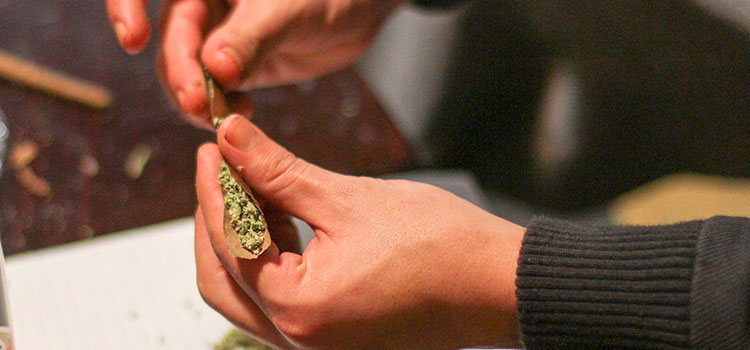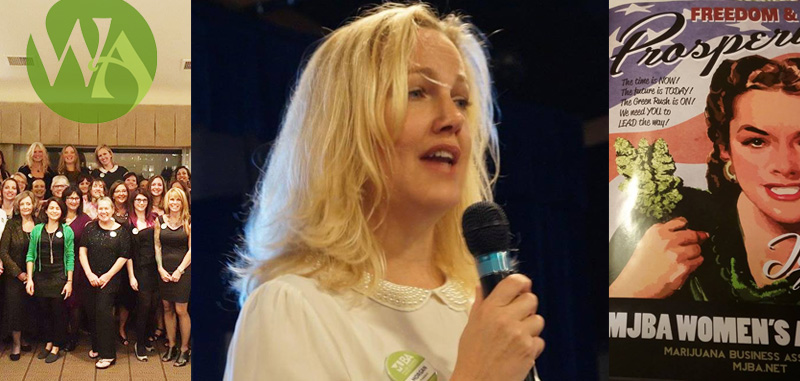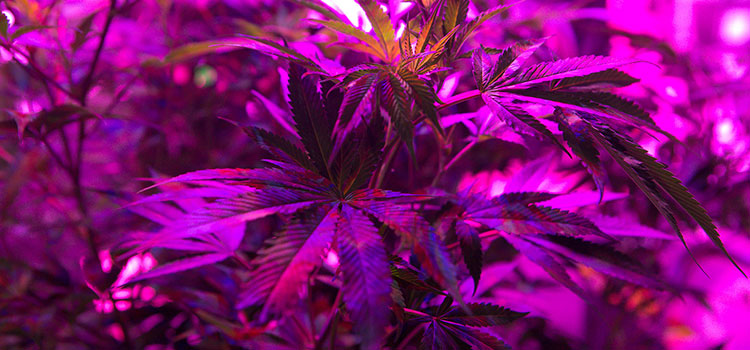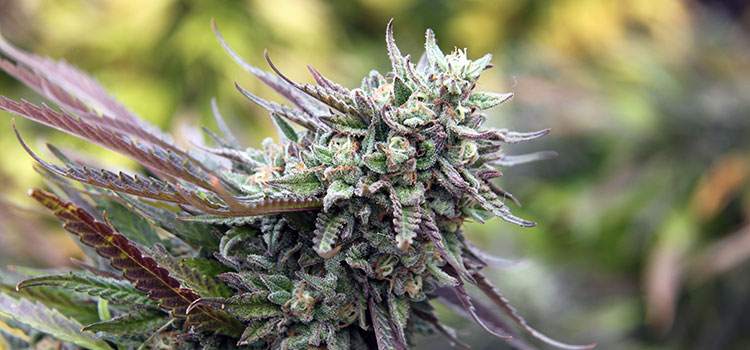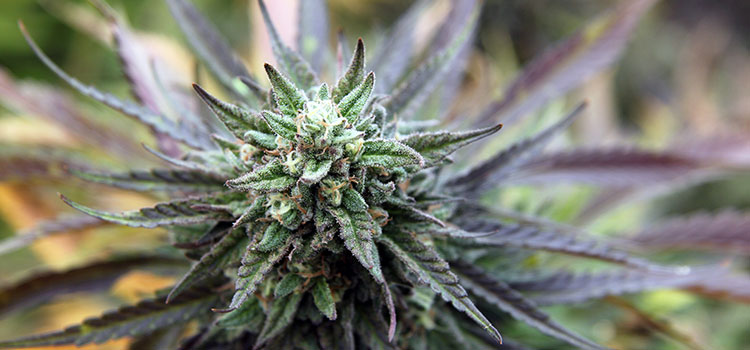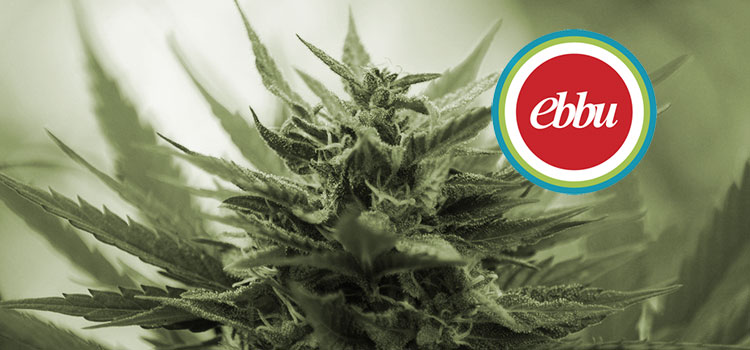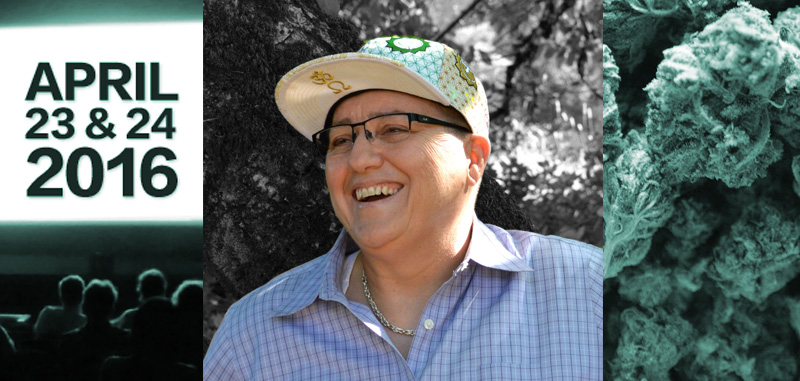 John Davis, founding member and current executive director of the Coalition for Cannabis Standards and Ethics, has been a stalwart in the pursuit of cannabis reform for over 20 years. He helped draft and coordinate some of the earliest cannabis legislation initiatives as a board member of the Hemp Initiative Projects, starting as early as 1993. Later, John founded the Northwest Patient Resource Center, a Seattle-based dispensary that is moving to transition to the recreational market. He has served as Cannabis Policy Expert for both Seattle and the entirety of Washington state and was elected vice-chair of the National Cannabis Industry Association’s board of directors in 2014.
John Davis, founding member and current executive director of the Coalition for Cannabis Standards and Ethics, has been a stalwart in the pursuit of cannabis reform for over 20 years. He helped draft and coordinate some of the earliest cannabis legislation initiatives as a board member of the Hemp Initiative Projects, starting as early as 1993. Later, John founded the Northwest Patient Resource Center, a Seattle-based dispensary that is moving to transition to the recreational market. He has served as Cannabis Policy Expert for both Seattle and the entirety of Washington state and was elected vice-chair of the National Cannabis Industry Association’s board of directors in 2014.
“If you’re really going to follow a law, if you’re going to follow a legislative cycle… you’ve got to put the work in.”
John recently joined our podcast host Shango Los to talk about the details that go into pushing marijuana reform at the state level through the complicated legislative system. They also discuss best practices for knowing and understanding proposed legislation, how to get and stay in touch with your elected officials, and how cannabis activists can work productively with politicians and lobbyists who are not in favor of cannabis reform.
You can listen to the interview via the media player below, or continue scrolling for the full transcript.
Subscribe to the Ganjapreneur podcast on iTunes, Stitcher, SoundCloud or Google Play.
Listen to the podcast
Read the full transcript
Shango Los: Hi there, and welcome to the Ganjapreneur.com Podcast. I am your host Shango Los. The Ganjapreneur.com Podcast gives us an opporunity to speak direct to entrepreneurs, cannabis growers, product developers and cannabis medicine researchers, all focused on making the most of cannabis normalization. As your host, I do my best to bring you original cannabis industry ideas that will ignite your own entrepreneurial spark and give you actionable information to improve your business strategy and improve your health and the health of cannabis patients everywhere.
Today, my guest is John Davis. John Davis is a founding member and executive director of the Coalition for Cannabis Standards and Ethics. He has worked on drug policy reform for over 20 years. John was a board member of Hemp Initiative Projects in Washington State starting in 1993 where he helped to author early marijuana legislation initiatives and run the campaigns. He is founder of the Northwest Patient Resource Center a medical marijuana dispensary in Seattle, Washington, soon to be 502 licensed. John was elected to the board of directors of the National Cannabis Industry Association in 2012 where he was elected vice chair in 2014. John is a board member of the Coalition for Responsible Cannabis Reform, the Nevada Cannabis Industry Association, and was a founder of the Washington Cannabis Commission Project.
John has served as Cannabis Policy Expert to the State of Washington and the City of Seattle, as well as several other states and localities. He has been an advisor to foreign presidents, heads of state, British parliament, and multiple US agencies. John helped author the Washington State implementation guide for 502 Regulated Cannabis with the Washington State Interagency Regulators Achieving Cooperation.
Before he’s moved to the Cannabis industry, John provided construction services for the US military and held a high level US military security clearance. John has been featured on ABC, NBC, CBS, Fox, CNN Money, Bloomberg Fox Business and many more. John was Cannabis Business Executive’s pick for the 8th most influential person in cannabis policy of all time.
Today, he is here to speak with us about working with state legislators on cannabis reform. Welcome, John.
John Davis: Hey. Thanks for having me, Shango. Great to be here.
Shango Los: John, what are your initial recommendations for someone new to following cannabis legislation at the state level so they get off on the right foot?
John Davis: It’s with anything. You first don’t take other people’s word for what’s going on in a legislative body, even someone that is connected. Because they don’t always give you the full picture and sometimes they have an agenda. The thing about it is, if you’re looking at modern legislature in any state, all of the stuff that’s online, in Washington, you can find that at ledge, and that follows the legislature’s every move.
You can look at the current language of any bill that’s going through the system. You can see the bills from an overview, and you can even see the proposed amendments on it. The one thing that I’ve noticed in Washington State is that often people are reading the wrong version of law, like they’re reading a couple iterations ago.
Often, when a bill is traveling through a legislature, especially in Washington, they’re striking amendments. What a striking amendment is in a piece of a legislation, is that is taking everything except for the bill sponsors and the title and replacing all the other words. A striking amendment basically turns it into different bill. You could be reading one bill and say, “Hey, I have a problem with that,” and there’s a completely different bill going on.
In the state of Washington, with any bill, it will have, if you go to the bill homepage, you can read through when it was introduced, what the first reading was, what committees it needs to go through, what committees have just passed, and all the way up into session law. If you look at the documents, and it’ll have all the available documents from the bill, once the bill is passed, that passed bill is always called, “Session law.” If you’re reading anything else, you’re not reading what actually passed.
First things first is make sure that you’re reading the right bill. As I say, if you’re serious about following legislation, here is the bad news Shango, is you have to sit down and read it. That is tough. Myself, what I do is I take myself out to dinner, because me and the bill and highlighter and a pen and I just sit there and have dinner and read the thing, all devices turned off, and go through it.
Bill language is like anything else. It’s a little bit learning a foreign language, but I think the best way to begin to have those skills is to just do it and to read it. After you’ve read a few of these documents, you understand the way they’re organized and you’ll say, “Oh, okay. Yeah, I understand this section is the intent section. This section has to do with this. This section has to do when sections are enacted.” You’ll begin to get it.
If you’re really going to follow the law, if you’re going to follow a legislative cycle, follow through the legislative cycle, you’ve got to put the work in. Unfortunately, you’ll read one iteration of the bill, you’ll have your comments, and then they’ll put in a striking amendment. Yes, you got to read that one too. When a striking amendment is proposed often, what you have to do is take that striking amendment and compare it to the last version of the bill to see what things have changed.
Sometimes, you have to go through line by line, because the iterations of the bill will only show you by underlining and striking what pieces were added, what pieces were taken away from existing law, not from the last iteration of the bill. Often, it’s a matter of mechanically going through line by line and saying to yourself, “What has changed here?”
Shango Los: It sounds like this would be a really good opportunity to use a mentor and that yes, your idea to make sure that you know where the bills are online, and to make sure that you’re reading the most recent bill are good, but it sounds like every state is going to have its own idiosyncrasies, and so finding a mentor who can say, “Okay, these are the five things you need to know. This is where the bills are kept. This is how to read it in our state.” To get your toes wet so that from that point, you can take yourself to dinner and know what you’re reading and know you’re reading the right thing.
John Davis: Yeah and that’s if you can find someone who is willing to do that. Yeah, that’s great, because they don’t teach you the stuff in school or going through and getting a poli-sci degree, they don’t teach you these skills. These are skills that are learned on how to follow legislation like this. Yeah, absolutely, if you can get a mentor without an agenda to sit and take you through how bills in your particular locality or state or whatever you’re concerned with, what that process is that would be a wonderful thing.
Shango Los: I think that’s a good point too that you need to suck it up and know you’re going to have to read this bill and read the bill over and over again very likely during the legislative cycle, because there are certainly rewards to it, because when you read the bill, you are going to know that better than anybody that you talk to. Because almost nobody else has read the bill, and so you have a level of familiarity with it that others won’t, which will not only have other people that you’re trying to activate respect you more probably, but also when you speak to the legislators, they’re going to know that you’re not contacting them just based on rumor, but that you’ve actually done your homework.
John Davis: Yeah, and there’s so much rumor out there like, if you’re going to follow a bill, follow a bill, but don’t just take other people’s words for it, because those people come with agendas and they will tell you things about a bill that’s more rumor than truth. Then if you’re just going around saying, “This bill ends hashish in Washington State,” is like, “No, it doesn’t. Here’s the sections that that’s in. It’s more nuance than that.” If you’re going to be all opinionated about the bill, at least know what you’re talking about.
You should know, these bills are broken up into sections and if you’re concerned with concentrates, there’ll be a section maybe too that deals with that. You could at least find those sections and follow those sections. If you’re going to have an opinion, please make sure that you yourself are looking at it and not taking anyone, else’s word because the upshot to that is with the rumor, it gets a lot of those people.
Some agency will go out and say, “Hey, we need to storm our legislature because they are proposing this,” and it’s not true. Then a bunch of people show up down at the legislature and start lobbying their legislators to change something that’s not there. It makes us all look like we’re high.
Shango Los: Yeah, I believe that. Thanks, John. We’re going to have to take a short break right here. We’ll be right back. You are listening to the Ganjapreneur.com Podcast.
Shango Los: Welcome back. You are listening to the Ganjapreneur.com Podcast. I am your host, Shango Los. Our guest this week is longtime cannabis activist, consultant, and entrepreneur, John Davis. John, before the break we were talking about you really want to get into following cannabis legislation at the state level, you really need to get in with both feet.
Getting involved with the creation of legislation to be really frustrating and fulfilling at the same time, there’s so many deals that are made in the shadows and so much money in the game. Do you think that individual people can still play a role in cannabis legislation at the state level?
John Davis: Yeah, absolutely. Yes, if you’re on your own and not willing to put in the work, yes, you are unable to affect anything. However, if you are actually willing to put in the work and you by yourself can be effective by going in and making those relationships with legislators and getting to know them. One of the best things that you can do as a private citizen is show up to the fundraisers. You don’t even have to give money every time you go to a fund raiser, nobody checks, but money is the way that some of the engine runs.
If you’re able to give some, that always helps. You give some money and you can get a legislator on the phone, but by forging these relationships, you by yourself can be influential by being able to influence a lawmaker. Then that lawmaker can be influential in the actual floor, the stuff that goes down on the floor. What’s a better idea is to find other people with like minds, and that’s what you can do is just show everybody is find other people that have like minds. It actually makes it better, because when you’re going through, you’re all having to read the law. You can cry on each other’s shoulders about how much it sucks. As you’re more people, you have a larger voice. You can get to more legislators. You can even give yourself a name, and as long as your brand is good and they consider you people that know what you’re talking about, then yes, you can be effective.
It’s not just about the money. It can be a lot about the money, but it’s also, given the money, the legislators aren’t going to do something that’s just evil because of money, they have to get reelected. They are definitely influenced by money, but they’re also influenced by putting together something that is not going to be horrific to the voting public.
Shango Los: It sounds from what you said before the first break that they would really value, the legislators, would appreciate being come to with actual ideas from somebody who’s actually done their homework. Since so many cannabis activists are, we’ve got more history than a lot of the legislators, that coming, having read the bills, and actually having some solutions in mind instead of just coming in and complain, would also be a really great way to create influence.
You might not come with money, but if you come with ideas, they have their own value and the elected officials will probably be thrilled to hear them, because maybe that’s the solution they’ve been looking for themselves.
John Davis: They are. Look, if you actually know what the heck you are talking about, you are stakeholder and you can give them the stakeholder’s perspective. If you really know what you’re talking about, they want that. You do have to come with solutions, but those solutions like, people think that they can come and say, “Hey look, I think the law should include this.” It’s like, no, to be effective, you say, “Okay in third line page 46, I need, should to be may.” That is what actually changes legislators minds, because that’s something that they could do.
You’re not asking them, “Hey, can you go understand all of this subject and then change it based on these ideals that I have?” They’re not going to do it. When you come in and say, “Look, I’ve read the proposed bill, I’m good with a lot of it. Section three, I need this paragraph to be stricken, specific things,” they’re really looking for it. If you actually have credibility of knowing what you’re doing, they can also say, “Hey look, we’ve met with stakeholders and the stakeholders wanted this.”
Shango Los: That sounds like it would make a lot of sense to give them truly actionable information that they can do something about instead of having it be amorphous. Then they have to take the next step to figure out how to actually make that happen. We’re talking about meeting with the state representatives in order to make this happen. For folks who have never done that before, how exactly do you do it? Is it as easy as just picking up the phone and calling them and asking for their time?
John Davis: Oh, no. They view that as lazy. Sometimes they’ll give you their time, but look, if you’re interested in, let’s say Washington state for example, go down to Olympia and drive down to Olympia, parking actually, the rates are not too bad, and go into the legislative session early on. This is after you’ve already attended a bunch of fund raisers, right, but now you’re in session. Go to the offices of especially people that are in the committees that matter to your bill.
Do you meet with the representative? No, you meet with the legislative aides. Those legislative people don’t understand how important legislative aides are. Most of the stuff that’s actually written comes from the legislative aides, not the legislator. Now, knowing the legislators handy, because they can steer this whole process, but once you’re good with the legislative aides, you come by, they know who you are, bring them by good analysis, then you get to be known by that offense, but never underestimate the person that’s sitting at the desk, that’s the receptionist.
Shango Los: So I shouldn’t feel bad if I go to visit my representative and they’re not there, or even if they are there and I’m introduced to an aide, because actually the aide might actually have the juice that I’m looking for. It isn’t being punned off on an aide. That aide might actually be the channel I’m looking for.
John Davis: Yeah, the aide actually may be more effective than the legislator, because the aids generally are the ones that actually do the work. The legislatures just goes down. The legislator’s job is to go and get that work through the legislative process.
Shango Los: What if I want to approach a representative who is on the other side of the bill? I know that they may not want to make the changes that I’m going to suggest, but I really want to talk to them and potentially sway them, or point out something that I think that they’re misinterpreting. What’s a good way to approach somebody who’s on the other side?
John Davis: Okay, remember that these people are human. I think that a lot of people think that somehow elected officials are somehow super humans or something, a lot like the rest of us. If you go in yelling and screaming, they’re going to think to themselves, “How rude. Don’t let that person in my office,” certainly never setup a meeting with them.
Also, if you’re talking to them from a knowledge point, they’re going to listen better. If you come with respect like, okay, so you’re going in and you’re having typically democratic issue with a republican — find common ground, i.e., to take cannabis for instance. I’ve talked to high level people in congress, US congress that are republicans and actually the republicans are getting more just good with the issue and say, “Hey look, republican, don’t think of this as a cannabis thing. Think of this as a … You’re for small government, right? You’re republican. You’re for small government, you’re for state rights, you’re for the 10th amendment. You don’t have to be pro-cannabis or anything like that, just be a republican.” Try to put it, frame it from their standpoint, the way that they’re going to look at it and …
Shango Los: I see. Suddenly, it’s not, “Oh, we want to make this drug legal. This is about individual rights and this is about the freedom of businesses to go into what they want and the freedom to pay your taxes and be an American.
John Davis: Yeah, exactly. You’re framing it from their point of view. You can actually made headway that way. In anything that you’re doing with the legislative body, when you’re coming into someone that’s on the opposition, first, show no hate. Be very cordial. Shake their hand. Say, “Thank you for taking the time. I’d like to give you a perspective.” Even if they still agree afterwards, you be polite, even if they’re not polite to you.
You shake their hand and you thank them for their time and then you come back. At some point, legislators, they’ll feel for you, if you’re putting in the effort, even if they’re on the other side. If you’re constantly respectful, most of them will show that back to you. Some of them will never, but.
Shango Los: That makes a lot of sense too, because it will give them an opportunity to see you as a human if you’re treating them like a human as well. We’re going to take another short break and be right back. You are listening to the Ganjapreneur.com Podcast.
Shango Los: Welcome back. You are listening to the Ganjapreneur.com Podcast, I am your host Shango Los. Our guest this week is longtime cannabis activist, consultant, and entrepreneur, John Davis. John, before the break we were talking about the best way to approach our elected representatives, just treating them like humans, and whether they’re on the side of cannabis that we want them to be, or whether or not they’ve got issues, either way treat them like good people.
John Davis: Right.
Shango Los: I would think that over the course of a legislative cycle, lots of really unexpected and ugly things could happen. What’s the best way to deal with when you get involved of making the sausage of a bill and things just totally fall off their axles?
John Davis: What happens if, more like what happens when. This is legislative sausage being made and I’ve been through a lot of legislative sessions in the state and localities and actually in the US congress. You’ve got a bill and you’re trained to usher it through the process, everything is going to appear to be coming off its axles, but really it’s the way that it’s done.
There’s going to be people on the other side, now you’re lobbying for something. Perhaps, you did your work and got in early and got a sponsor and it’s your bill. You actually wrote it, and you shopped it and you got someone to introduce it. Now, the people on the other side, you think they’re going to say, “Wow, that’s the piece of legislation I’ve ever seen.” No, it’s not the way it goes. There is going to be someone that’s against you. There is going to be the localities, or the police, or this or that, or private prisons.
Those people are going to be attempting to make your bill a 180-degrees from what you planned it to be. It’s a dynamic process. Then you’re really trying to understand who your opposition is, who are those people on the other side, how can I get to them? A lot of people don’t know that being a good lobbyist means lobbying other lobbyists as well, not just he legislators, but to find those people on the other side and say, “Hey, can I crawl into your head a little bit and understand it?” “Okay, yeah we’re natural enemies, but maybe we can … Do you really need this? Can you soften on this part?” Even work together in those ways, because what you’re trying to do is you’re trying to get the best bill possible.
There is no perfect piece of legislation, it’s all sausage. There’s going to be things in there that you are successful in and there’s things that you’re not so successful in. That’s just the way it’s made, but that’s why they make another legislative cycle so you can go in the next year and fix those things that you weren’t able to fix this year, and to make sure that the stuff that you really want are in the bill.
All sorts of things happen. They can be people lobbying on your side, seemingly on your side of an issue, but they could be doing it in a really poor way that is starting to anger people. People will get upset about your issue based on the behavior of people that come in and purport be on your side. You need a very dynamic… dynamic process.
Shango Los: I can see how even either our own allies and different cannabis activists could get upset because maybe they haven’t read the law or maybe they don’t understand how the legislature works. Maybe they’re getting angry because I’m not getting more angry and yelling when my communication style might not be to yell at legislators. I’m looking for a different solution and so I can imagine that it would be challenging not only to work sometimes with folks who are holding different opinions, but also people on my own side for people who want me to be more radicalized than the bill is going to allow.
John Davis: Nothing is worse for a cannabis bill than cannabis activists that are pissed off and want to yell at someone, because that’s exactly what they do. Often, you’re having to be in there and you have precious time there at the lobby and you have to spend the first five minutes saying, “Hey look, I’m not those guys.”
Shango Los: Right.
John Davis: I understand the passion is out there, but when the passion is misinformed, do you think that you’re going to come into a legislator’s office, yell at them and then they’re going to think, “Oh yeah, he’s right. I’ve been bad.” No, they’re humans. They’re going to be pissed off at you, “How rude of you to come into me? I’m an elected official and yell at me?”
Sometimes there’s a lot of damage control that you need to do from people on your own side. That’s why it’s important to build your own brand or your group’s brand. Hey, we work together. We might not always like what’s coming out, but we’re never going to come and accuse you of being evil for having a different view from us. Because you got to remember, there’s another legislative cycle that you can be effective in. If you’re down in a legislature, your one goal, your sole goal is to be effective like all else is secondary. Because actually, they are trying to change legislation.
If you’re yelling and screaming, you can alienate a legislator for life. The thing about it is, they’re humans. They can also be very petty. Sometimes, they will be against something because screw you, that’s why, and you never want to get there. You never know, and I’ve seen this over and over again, you’d never know when someone that you hated last session is a key committee vote for you at this particular junction.
If you’ve alienated them, you’re not going to be able to get that vote. Sometimes that’s what it is when it’s going through the committee process, it’s a matter of one vote. If you don’t have that vote or the committee chair sideways on you, you will never be able to usher a piece of legislation through. Yeah, gotta mind your Ps and Qs.
Shango Los: Yeah, absolutely. That sounds like a great point to end on to, to treat your representatives humanely and kindly. Make sure you do your homework and if you don’t pull it together, remember that there’s always another legislative session. John, thanks so much for being on the show.
John Davis: Thank you for having me. I had a good time.
Shango Los: John Davis is a longtime cannabis activist, consultant, and entrepreneur. You can find more episodes of the Ganjapreneur Podcast in the podcast section at Ganjapreneur.com. You can also find us on the Cannabis Radio network website and in the Apple iTunes store. On the Ganjapreneur.com website, you will also find the latest cannabis news, product reviews, and cannabis jobs updated daily along with transcriptions of the podcast.
You can also download the Ganjapreneur.com podcast via iTunes and Google Play. We are also thrilled to announce that you can now find the show on the iHeartRadio network app, bringing Ganjapreneur to 60-million mobile devices. Thanks to Brasco for producing our show. I am your host, Shango Los.



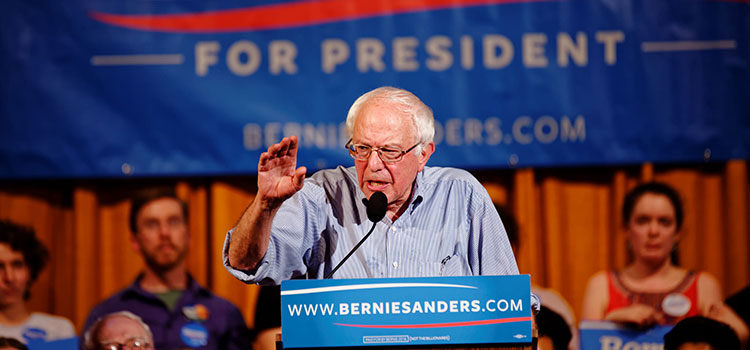

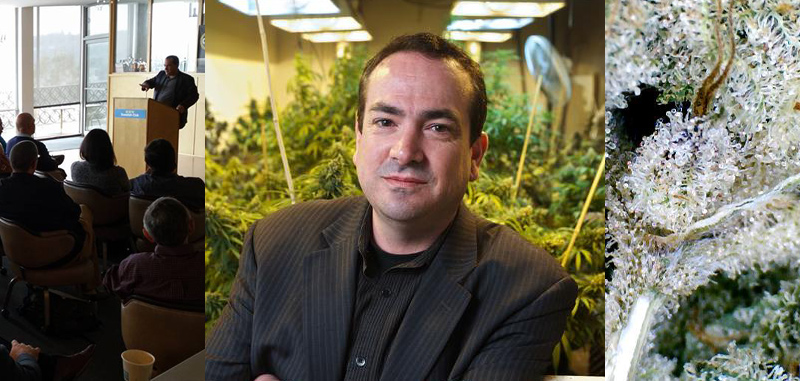
 John Davis, founding member and current executive director of the
John Davis, founding member and current executive director of the 




